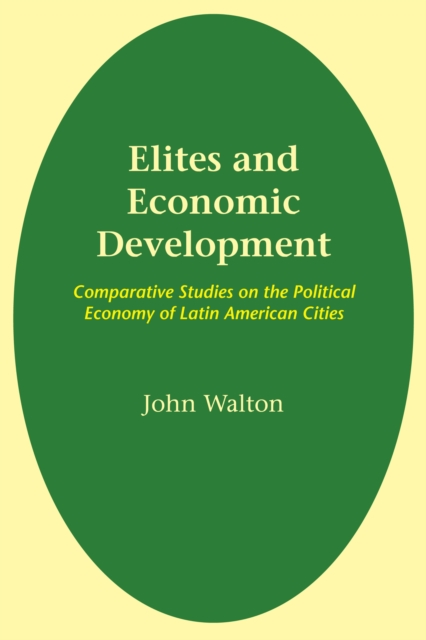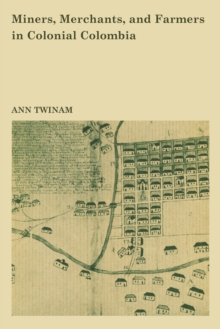
Elites and Economic Development : Comparative Studies on the Political Economy of Latin American Cities Paperback / softback
by JOHN WALTON
Part of the LLILAS Latin American Monograph Series series
Paperback / softback
Description
This book is a detailed comparative analysis of development politics in four urban regions of Latin America, two in Mexico and two in Colombia.
John Walton has based his studies on the assumption that the problems of economic growth are essentially political, that is, are problems of choice, decision-making, and the exercise of power.
His fundamental purpose has been to discover how elites of different kinds are more and less successful in the promotion of economic development, which he defines as a process in the organization of a society leading not only to higher levels of efficient output but also to a more equitable distribution of benefits. At the time, the four cities compared were the second- and third-largest metropolitan areas in each country, Guadalajara and Monterrey in Mexico, Medellín and Cali in Colombia.
This selection allows the author to pair, across countries, cases of early and large-scale industrialization (Monterrey and Medellín) with cases of more recent industrial growth in agricultural-commercial centers (Guadalajara and Cali).
Walton presents historical introductions to each of the regions and integrates these with original fieldwork and interviews with more than three hundred members of the political and economic elites. The findings are extensive, but in general they demonstrate that where political and economic power is more broadly distributed, where elites are more open and accessible, and where organizational life is more active and coordinated, regions tend to develop qualitatively as well as quantitatively, showing increases both in productivity and in such benefits as public services, housing, education, and a more balanced distribution of income.
If these characteristics are absent, regions may be industrialized but do not provide a broad sharing of the benefits.
Walton places a good deal of emphasis on the role of foreign investments, demonstrating that the more penetrated regions are also the less developed. Finally, the results of these studies are used to evaluate and advance theories of underdevelopment and particularly of economic dependency.
Information
-
Available to Order - This title is available to order, with delivery expected within 2 weeks
- Format:Paperback / softback
- Pages:270 pages
- Publisher:University of Texas Press
- Publication Date:01/01/1977
- Category:
- ISBN:9780292720183
Information
-
Available to Order - This title is available to order, with delivery expected within 2 weeks
- Format:Paperback / softback
- Pages:270 pages
- Publisher:University of Texas Press
- Publication Date:01/01/1977
- Category:
- ISBN:9780292720183










